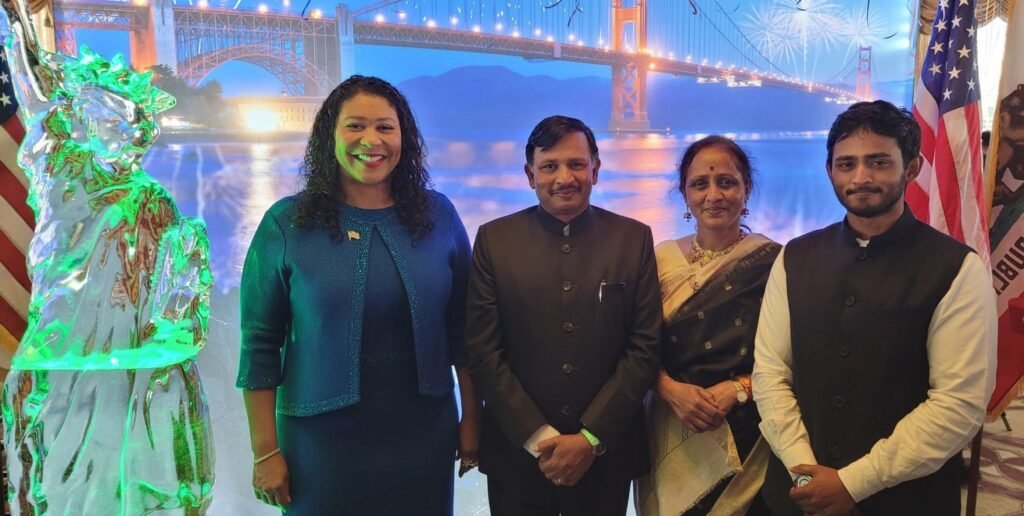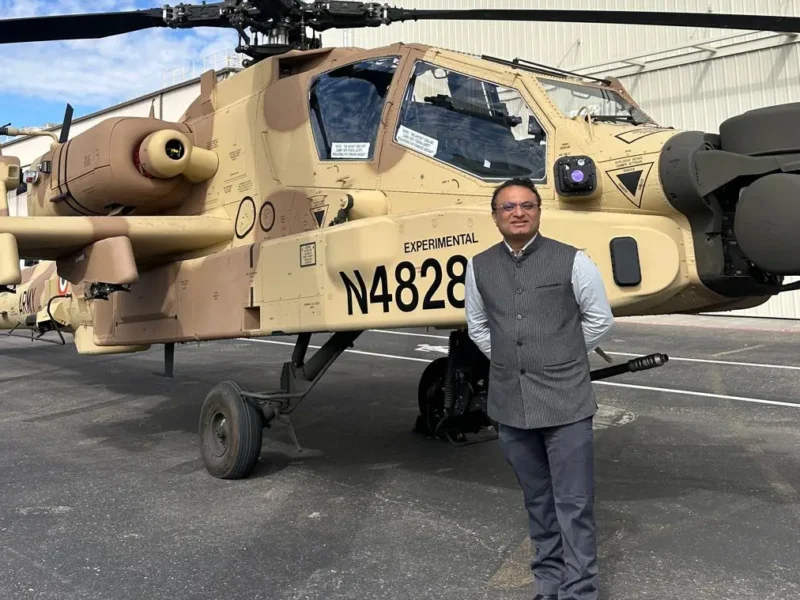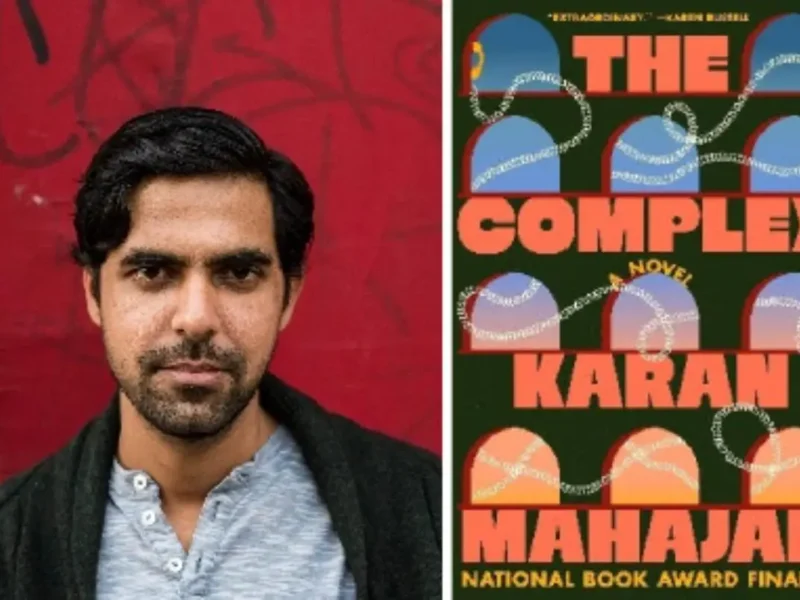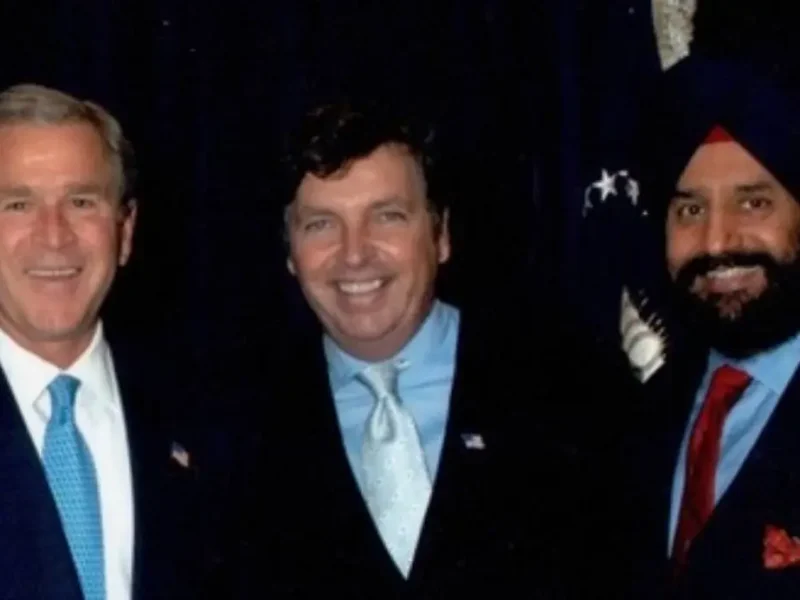America Recognizes Growing Influence of Indian Community: CG Nagendra Prasad
By NIMMI RAGHUNATHAN
It’s a busy job being the Indian Consul General, and more so in a region with a thriving and demanding community – Indian Americans in CA and the other states along the West Coast want their visas yesterday and business proposals sanctioned today. Through it all, there is the serene demeanor of Dr.T.V.Nagendra Prasad, India’s rep in San Francisco, observed at various events from afar, wearing a slight smile and patiently answering questions.
This year has proven even busier with India’s 75th anniversary: if the Consulate is not organizing or supporting a celebratory event, then the weekend has others who want Prasad’s presence in it.
The foreign service officer comes equipped for the job having served since 1993 in a variety of roles and places like Ashgabat and Berne, Thimpu and London. Even while navigating the varied cultures, Prasad is keenly aware of his own roots which are in Telangana where he studied and got his doctorate in agriculture. The community is just as likely to see him hobnobbing for India with VCs as in a temple.
The CG comes across as self-effacing, rarely using ‘I’ and seemingly always conscious of his official role. Ever the diplomat, he simply skirts questions from India-West that he doesn’t like (see Delhi and visa response below) and is off to the races where there is an opportunity to extol India (mostly edited out here for space):

Q: What has been the response to India’s 75th anniversary from mainstream America?
A: When the Prime Minister announced “Azadi Ka Amrit Mahotsav” in March 2021, there was enthusiastic response. We had Lt.Governor Eleni Kounalakis join us in celebrating our National Day Reception in 2021 and the iconic City Hall in San Francisco was lit in the tricolor. The Consulate began celebrations with an event on India’s ‘Technological Evolution’ with high-powered speakers; we also met and recalled the sacrifices made by Ghadarites at the historic Ghadar Memorial Hall in San Francisco. Most Indian associations have celebrated their annual events using the India@75 logo looped in with the Consulate. Hearteningly, the celebrations have included youth raised in the US and local communities who got to know of the historic event. Closer to August 15, we are holding a Tiranga Yatra across the Golden Gate Bridge besides ‘Har Ghar Tiranga.’ Several significant programs are in the pipeline up to August 2023 in various cities on the West Coast.
Q: In your encounters with CA politicians what has been the one overarching impression they have of Indian Americans?
A: In my interactions with various elected officials from the governor to local community leaders, it is clear the community commands a lot of respect and is known for its entrepreneurship, law-abiding nature, and hard work. Not only is the community appreciated, but its influence is also recognized. This is not just the tech community of the Bay area where so many corporates are headed by Indian Americans, but even the rich farming community in the Central Valley has proven to have a significant voice. The presence of elected leaders at events organized by the community is just one indication of the popularity of Indian Americans in the region.
Q: What are the three main things you hope to accomplish in your tenure in SF?
A: As Consul General, the major task is to provide efficient consular services to the 1.5 million-strong Indian American community on in 11 states and `Guam. We have done this with outreach activities, simplification of procedures, holding of consular camps, etc. I always look towards wider outreach to the community; most people I come across mention they would like to give back to their motherland. So they can engage with India in a sustentative way, I do a Live Radio program every quarter, to keep them abreast of developments in India. Our role is of a facilitator: we strive hard to promote Indian products and the particular interests of individual Indian states. We also engage with local politicians and officials to clarify certain issues and developments from time to time.
Q: US Universities are making a bigger and bigger push into India. What role if any does the consulate have in education ties?
A: Education is a very important and crucial sector for bilateral cooperation. With the announcement of the National Education Policy in 2020, many opportunities opened for foreign universities in India including setting up of centers. This interaction has been very intense in the last year with our Ambassador in Washington meeting several university officials across the US.
Related is the fact that at any point in time, we have over 200,000 Indian students in the US.
Q: The inevitable query on visas. How hampered are consulates by Delhi’s diktats?
A: As you are aware, most of the companies in the Bay Area have offices in India which provide various services to the main company in the US. In order not to hamper their work during Covid, we continued to issue employment and business visas. Only tourist visas were not issued during the severe Covid period, just as every other country did. As regards visas to the community, we kept our office open even on weekends during this sensitive period to serve those who had to make emergency visits to India.
Q: You have served in countries that range from democracies, autocracies, and monarchies. How does it affect the role of an Indian diplomat in building ties? For instance, is it more ponderous in a democracy and opaquer in different systems?
A: Diplomats are supposed to work in any kind of political system. We always look for areas of collaboration. I am sure you are asking this question after looking at my postings but let me say that the political system played a very small role when it came to cementing relations.
Q: You were in Tehran. Is there an acknowledgment of the ancient links between India and Iran or is India viewed as Hindu and different?
A: India and Iran shared historical relations and as you are aware, Persian was the court language in the Moghul Era. We share culture and language and at one time even a border. Please note that India is home to about 160 million Muslims, the second largest only to Indonesia. India and Iran also complement each other’s economies.
Q: You have a background in agriculture, does that come in use in your travels in California? What have you seen here that you would like India to have, and do you think the US agricultural sector could do with from India?
A: My agricultural background makes me appreciate California’s rich and diverse agricultural economy more. Whether oranges or nuts, the produce of California makes me think about wider opportunities for collaboration. Several Indian delegations have come to observe the cultivation practices, varieties of crops, and processing of fruits and vegetables. Some states of India have been expressing interest in avocado cultivation. This is such an important sector that in my view has great potential for the future when it comes to ensuring global food security.
Q: A message for the community…
A: Always preserve and pass on the rich and diverse culture of India to the next generation. I am happy that several community organizations have established language schools, also the hundreds of music and dance schools that keep our classical and folk traditions alive in this part of the world. As is being noted, the future of the world belongs to the continent of Asia in general and India in particular; the youth will benefit from this. They will have ample opportunities due to India’s growth story and its vibrant democracy.
Short Takes:
– A place, thing, memory in the US that has left an impact: Central Valley where hardworking Indian American farmers have so admirably, made it big.
– Country you have not visited and would like to: I have to yet explore India fully before going off to other countries.
– Recommend a book or film that would explain the Stan countries to us: No single book or film can make you grasp the Stans. One has to visit these interesting places to understand them.
– Free time: Golf and movies.
– How wife and son cope with the constant moves of a diplomatic career: It is really tough. Hats off to my wife Padma who made life easy in these diverse places with her quick adaptation. My son, despite various systems of education from London-Bhutan-Delhi-Switzerland, made it to MIT and Stanford. I think exposure prepares them for challenges.





GM Shah
/
Counsulate services in SF are of poor quality and office does not even acknowledge or respond request on time . Typical Indian gov services we were used in India .
August 11, 2022Request him to learn good things from country their office is located .
No excuse please . Or pack up and not lecture us how good you are , sir .
R. Reddy
/
I was able to travel home for a family emergency during very stressful times in the pandemic. I have heard the same from 2 of my friends as well. If you had one bad experience, you may want to check your own planning, or read their website more thoroughly; I found my experience to be very smooth and quick. I have faced far worse delays and difficulties with US immigration services. Please don’t just hate on your country and its services so easily and nonchalantly. It is people like you that are perpetuating the colonial mindset.
August 13, 2022